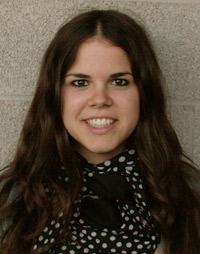What is a virtual exchange? Maybe not what you think. We’ll be digging deeper into that in this special edition of Absolutely Intercultural coming to you from Denmark. My name’s Anne Fox and this is show 232. Today’s show is mainly about promoting dialogue between different groups of people. So what is dialogue? And can you tell the difference between dialogue and, for example, debate?
Tag: cultural identity
Absolutely Intercultural 216 +++ Erasmus 30 Anniversity +++ Practical Teaching +++ Study Abroad
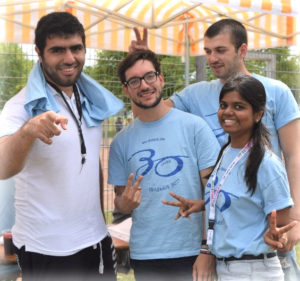 Welcome to show 216 of our podcast “absolutely intercultural” which is the second of a series of “Erasmus podcasts” to celebrate and highlight the 30th anniversary of this “mother of all student exchange programs”. In this episode we are going to hear from the three participants of the program sharing their dearest experiences and stories with you. What is it like to be an Erasmus student? What is is an “Erasmus Experience”? Perhaps living on your own in completely different country for the first time! Stay tuned and listen to our international exchange students from Azerbaijan and Spain, as well as a guest lecturer from Canada.
Welcome to show 216 of our podcast “absolutely intercultural” which is the second of a series of “Erasmus podcasts” to celebrate and highlight the 30th anniversary of this “mother of all student exchange programs”. In this episode we are going to hear from the three participants of the program sharing their dearest experiences and stories with you. What is it like to be an Erasmus student? What is is an “Erasmus Experience”? Perhaps living on your own in completely different country for the first time! Stay tuned and listen to our international exchange students from Azerbaijan and Spain, as well as a guest lecturer from Canada.
SIETAR +++ Cultural Mentor +++ Sustainability +++ Absolutely Intercultural 215
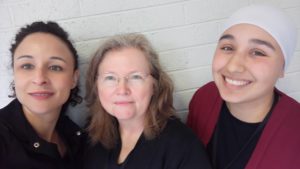
At the end of May I attended the SIETAR congress in Dublin, Ireland, which was all about cultural dexterity for turbulent times. Welcome to show 215 of Absolutely Intercultural which today features three of the speakers from the Congress. Plus I was there to talk about the culture of sustainability
Continue reading “SIETAR +++ Cultural Mentor +++ Sustainability +++ Absolutely Intercultural 215”
Brexit +++ EU referendum +++ citizenship test +++ Absolutely Intercultural 208 +++
 In this show we will be talking about the UK referendum to leave the EU and some of the consequences it has had.
In this show we will be talking about the UK referendum to leave the EU and some of the consequences it has had.
Many of the people that the referendum result would affect most did not have a vote and we talked to two of those. Once the result was announced there were reports about immigrants being abused and attacked. This made Ania, a Pole living in Scotland, a bit more careful when phoning home. And what about Britons who have moved to other EU countries. Will their status be safe? Gwen is a Briton who has lived her whole life in Denmark. Two years ago Denmark changed its law to allow dual nationality so Gwen decided she would like a Danish passport alongside her British passport.
Continue reading “Brexit +++ EU referendum +++ citizenship test +++ Absolutely Intercultural 208 +++”
Stereotypes +++ Dubuque +++ Yartey +++ Ideal Global Life Summit +++ Absolutely Intercultural 186
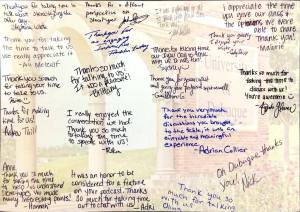 Happy New Year! Welcome to the first Absolutely Intercultural show of 2015 brought to you by Anne Fox in Denmark.
Happy New Year! Welcome to the first Absolutely Intercultural show of 2015 brought to you by Anne Fox in Denmark.
absolutely global
We start by going absolutely global as the Living Your Ideal Global Life Summit, which ran for the first time last January, is about to happen again. I will let Sabrina Ziegler one of the main organisers, tell us what we can expect this year. Don’t forget that it is free to participate, you can sign up at the website and the dates are from 26 to 30 January. If we’re lucky we may be bringing you a few highlights from the summit in a future show. Continue reading “Stereotypes +++ Dubuque +++ Yartey +++ Ideal Global Life Summit +++ Absolutely Intercultural 186”
absolutely intercultural 159 +++ Rotation Curation +++ Culture Shocks +++ Jordan +++ Working in an international environment +++
Our New Editor from Spain: Elena Colunga Caballero. Welcome to our team!
So what should we be listening to in this podcast:
How do you personally try to gain authentic information about a country and culture that you are interested in? Do you trust the official view of the foreign office website? Or do you go straight to Wikipedia? How about listening to some real people from that country? This way you will get the unofficial story from the citizens themselves. Perhaps it could be interesting to listen to a father of two children who can tell you what it is really like to take the two on public transport or to a restaurant? This is inside information that you may not find in any of the official publications of the country. Under a system which is called Rotation Curation Movement, Karsten Kneese will host the twitter account of I_amGermany for a week starting next Monday.
absolutely twitter
Let us explore what you, the listeners can find out about his culture if you follow him during that week. In our first category “absolutely twitter” I asked Karsten how the Rotation Curation Movement has developed since it started in Sweden last year. If you are interested, please find “I_amGermany” on Twitter on Monday and follow Karsten around for a week. This is grass-roots journalism on Twitter that I think you should not miss. You have the opportunity to find out the real story from real citizens without having to travel to the country.
absolutely stereotypical
I spoke to a group of students from the German-Jordanian University who jumped in at the deep end and decided to spend a whole semester in Europe. In our second category “absolutely stereotypical” I asked them what their parents and friends had warned them about before they left.
absolutely international
In our third category “absolutely international” I am talking to a young but very well travelled person. After spending all her holidays abroad since she was 15 she has also studied in France and has now started doing her practical training in the department of Languages /International Affairs at the University of Applied Sciences, Koblenz. I asked Elena from Spain what her friends and family had said when she was planning her big step.
absolutely different
Let us now return to the group of Jordanians who told me that in their country it would be very unusual for a lecturer to go to the university by bike, because there seems to exist a bigger “power distance” between lecturers and their students. We also learn that in Jordan, if you get invited to dinner you have to refuse several times in order to be polite before you finally accept. So one of the students politely said “No” to a dinner invitation in Germany but then learned the hard way that here you only get one shot, and he was not invited again. In our last category “absolutely different” I asked the students to explain major cultural differences which they have observed during the first weeks in Europe.
Our next show will again be coming to you on 2nd of November from Anne Fox in Denmark.
Until then –
Bleiben Sie absolut interkulturell!
And please visit our Facebook page.
The host of this show is: Dr. Laurent Borgmann
Editor: Elena Colunga Caballero & Karsten Kneese
![]() Download
Download
![]() Podcast-Feed
Podcast-Feed
![]() iTunes-Abo
iTunes-Abo
absolutely intercultural 157 +++ CSR +++ students view +++ real life projects +++ community work +++ school children +++ elderly people +++
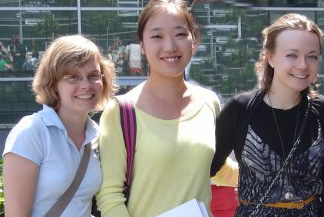 Today I would like to pick up the topic of your last show. We talked about CSR which stands for “Corporate Social Responsibility”. In times of global markets and increased business competition, Small and Medium sized Enterprises must find a way to increase their competitive edge. Therefore they often try to save costs as a result of competitive conditions and market instabilities. However, maybe a cultural change in companies will give them a competitive advantage? Implementing and practicing CSR may lead to increased costs and you may not see the benefits immediately. So why do successful companies go in that direction? Apparently around 50% of American and European SMEs believe that CSR-activities are somewhat effective for their business. SMEs can change their company culture and provide significant benefits by investing in small, efficient projects in society to increase their own visibility in the community. Some companies may do something good for the environment or donate money and others might start working in close cooperation with Non-Profit and Non-Governmental Organizations. This time I would like to approach the topic from a different angle. CSR is becoming more and more important in business life and thus future managers should have a solid knowledge about it. In previous shows I talked to CSR specalists such as lecturers from different European universities and employees of companies which have implemented CSR in their business plans. Our focus was to find out how CSR work changes the culture within the company but also the contacts between a company and its stake holders. Today my focus is on students and what they learn about CSR during their studies of Business Administration. I interviewed students from Hungary, Russia, and Mongolia who dealt with corporate culture and CSR in their last semester at RheinAhrCampus in Germany in one of my courses called “International Business Simulations”.
Today I would like to pick up the topic of your last show. We talked about CSR which stands for “Corporate Social Responsibility”. In times of global markets and increased business competition, Small and Medium sized Enterprises must find a way to increase their competitive edge. Therefore they often try to save costs as a result of competitive conditions and market instabilities. However, maybe a cultural change in companies will give them a competitive advantage? Implementing and practicing CSR may lead to increased costs and you may not see the benefits immediately. So why do successful companies go in that direction? Apparently around 50% of American and European SMEs believe that CSR-activities are somewhat effective for their business. SMEs can change their company culture and provide significant benefits by investing in small, efficient projects in society to increase their own visibility in the community. Some companies may do something good for the environment or donate money and others might start working in close cooperation with Non-Profit and Non-Governmental Organizations. This time I would like to approach the topic from a different angle. CSR is becoming more and more important in business life and thus future managers should have a solid knowledge about it. In previous shows I talked to CSR specalists such as lecturers from different European universities and employees of companies which have implemented CSR in their business plans. Our focus was to find out how CSR work changes the culture within the company but also the contacts between a company and its stake holders. Today my focus is on students and what they learn about CSR during their studies of Business Administration. I interviewed students from Hungary, Russia, and Mongolia who dealt with corporate culture and CSR in their last semester at RheinAhrCampus in Germany in one of my courses called “International Business Simulations”.
absolutely young
In our first category I asked Katalin Perjési from Hungary what she thinks about CSR and what she learnt on the course. She will tell us about a project where the students designed and implemented their own CSR projects for the university. They invited school children to the campus to teach them about respect and diversity in the community. Some said afterwards that they walk past the university every day but had never dreamed of spending a day inside before they reach their A-levels. As these were school children who often get taught in classes with many national backgrounds it was not so surprising, how much they already knew about diversity, respect for different cultures and dealing with other children who do not have the same first language.
absolutely green
I interviewed Nadya Kokareva from Russia. She will tell us about the vague ideas people have about CSR and gives us some examples of how a university could practice CSR. This is not exclusively about institutions “going green”, which means saving the environment. Nadya also took part in the course and participated in another project. This time, the target group were not the children in the community, but the elderly people who live in a nursing home just 800 metres from campus. In spite of the proximity, the students who took part in the project had never visited the home.
absolutely courageous
Oyunbileg is an exchange student from our Turkish partner university in Izmir. However, she is originally from Mongolia and is currently doing her Erasmus semester abroad. In our last category she will talk about her theoretical lectures on stakeholder relationships and relates the theory to the practical CSR projects she was involved in last semester. Finally she gives us an idea of the cultural differences she experienced moving between Mongolia, Turkey and Germany.
Our next show will again be coming to you on 7 of September.
Until then –
Bleiben Sie absolut interkulturell!
The host of this show is: Dr. Laurent Borgmann
Editor: Markus Scherer
![]() Download
Download
![]() Podcast-Feed
Podcast-Feed
![]() iTunes-Abo
iTunes-Abo
absolutely intercultural 156 +++ Corporate Social Responsibility +++ Theory & Practice +++ Sceptical Point of View +++ Turkcell +++ Success stories +++ European Companies +++ Non-Profit Organization +++
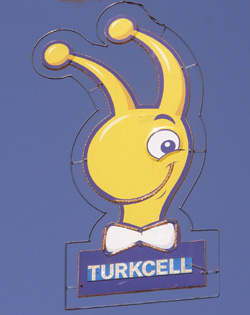 Today I am going to talk about CSR which is short for “Corporate Social Responsibility”. In postmodern times, “Corporate Social Responsibility” has enabled companies to do something good for society and to give something back to the community. Some companies may plant trees or donate money and others might start working in close cooperation with Non-Profit and Non-Governmental Organizations to help people in need. I visited an intercultural Erasmus Intensive Program at Yasar University in Izmir, Turkey, where I got in touch with the big Turkish telecommunications company called “Turkcell”. Together with Corporate Responsiblitly Specialists from Turkcell and university lecturers, who teach CSR-related aspects of marketing we talked about good practice examples of CSR but also about the dark sides of the concept.
Today I am going to talk about CSR which is short for “Corporate Social Responsibility”. In postmodern times, “Corporate Social Responsibility” has enabled companies to do something good for society and to give something back to the community. Some companies may plant trees or donate money and others might start working in close cooperation with Non-Profit and Non-Governmental Organizations to help people in need. I visited an intercultural Erasmus Intensive Program at Yasar University in Izmir, Turkey, where I got in touch with the big Turkish telecommunications company called “Turkcell”. Together with Corporate Responsiblitly Specialists from Turkcell and university lecturers, who teach CSR-related aspects of marketing we talked about good practice examples of CSR but also about the dark sides of the concept.
absolutely helpful
Turkcell afford to have a dedicated department which only deals with CSR issues. In our first category Burcu Haylaz tells us, how their company is doing charity work in Turkey and how quickly they took action after a horrific earthquake struck the province of Van in Eastern Turkey in 2011. Besides that I was really captivated by the “Snowdrops” project for young women and by the idea of the digital moneybox for collecting contributions from the wider public.
absolutely sceptical
Unfortunately not every company is really practicing CSR to genuinely help others. Some companies are rather trying to help themselves. Often the campaign appears like 100% marketing for the company. In this category I talked with Ann Knaepen from “Leuven University College” in Belgium, Carla de Lima from the Polytechnic Institute of Bragança in Portugal, Dr. Reka Jablonkai from “Corvinus University” in Hungary and Anne Burke from the “Letterkenny Institute of Technology” in Ireland. Together we talked about the phenomenon of “Green Washing”. This means, that companies that have a bad image in society, are using low-input CSR measures to artificially clean their own image. Green Washing, the negative side of CSR, seems to be an activity which flourishes in the shadow of all the good practice examples of corporate social responsibility. So I guess we need to be careful when we hear about large companies practicing CSR. There is a chance that they may be doing good things for the wrong reasons. Oxfam and Turkcell on the other hand seem to be great examples of companies and organisations that seriously and honestly try to improve the lives of all their stakeholders, not just their customers’.
absolutely idealistic
In our last category I would like to come back to our Turkcell CSR specialists. Together with them and the Turkish lecturers, we discussed theoretical aspects of CSR and their practical implementation. My Turkish colleague Duygu Turker who teaches CSR at the university asked Derya Kökten from Turkcell what factors in her view make a CSR activity successful. It is refreshing to hear how the university lecturers and the practitioners were working together on building this bridge between theory and practice in our seminar. I think such encounters, in this case hosted at Yasar University in Izmir, provide excellent opportunities to share important knowledge and to create a network so that students and lecturers from universities and the specialists from companies can work together to find the best solutions.
Our next show will again be coming to you on 3 of August.
Until then –
Bleiben Sie absolut interkulturell!
The host of this show is: Dr. Laurent Borgmann
Editor: Markus Scherer
![]() Download
Download
![]() Podcast-Feed
Podcast-Feed
![]() iTunes-Abo
iTunes-Abo
absolutely intercultural 155 +++ Intensive Seminar +++ Izmir +++ Corporate Social Responsibility +++ European Companies +++ Crisis +++ Non-Profit Organization +++ SERVAS +++
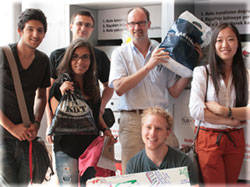 Today I am going to talk about CSR which is short for “Corporate Social Responsibility”. My students and I visited an intercultural Erasmus Intensive Program for students and lecturers from 12 different universities all over Europe organized in Izmir at Yasar University in Turkey. We all shared our knowledge and experience concerning the different approaches to CSR in different countries and learned a lot about challenges and benefits in the European context. In general you could say that CSR is meant to improve the relationship between a company and all its stakeholders. It actually must be the responsibility of us all and especially of successful companies to protect society and the environment. CSR also changes company cultures by improving the relationship with employees, suppliers, customers, the environment and the local community.
Today I am going to talk about CSR which is short for “Corporate Social Responsibility”. My students and I visited an intercultural Erasmus Intensive Program for students and lecturers from 12 different universities all over Europe organized in Izmir at Yasar University in Turkey. We all shared our knowledge and experience concerning the different approaches to CSR in different countries and learned a lot about challenges and benefits in the European context. In general you could say that CSR is meant to improve the relationship between a company and all its stakeholders. It actually must be the responsibility of us all and especially of successful companies to protect society and the environment. CSR also changes company cultures by improving the relationship with employees, suppliers, customers, the environment and the local community.
absolutely timely
We organized a roundtable discussion about CSR with lecturers from all over Europe who all participated in the ERASMUS Intensive Program in Izmir. Together with Ann Knaepen from the Catholic University in Leuven, Belgium, Carla de Lima from the Polytechnic Institute of Bragança in Portugal, Dr. Reka Jablonkai from Corvinus University Budapest in Hungary and Anne Burke from the Letterkenny Institute of Technology in Ireland we discussed different examples of CSR in those countries. We discussed, whether the middle of an economic crisis is really the right time to spend money on CSR-projects.
absolutely win-win
In this category, I would like to dive into the topic a little deeper. I am talking to Laura Brandt from the Haute Ecole de la Province de Liège in Belgium. She is a lecturer for Entrepreneurship and a bit of an expert on SMEs, which means “Small and Medium sized Enterprises”. She tells us that, in fact, 99% of all European companies are SMEs. These companies are facing tough economic challenges right now in the crisis. Laura explains why it is so important for SMEs to integrate Corporate Social Responsibility in their “core business values”. I asked her to tell us how she found out about the subject before joining the intensive seminar in Turkey. Laura gives an interesting example of a cleaning company in which CSR really turned into a win-win situtation for the company and all its stakeholders.
absolutely communicative
Our last guest for today is Adelheid Korpp. Adelheid and her husband love traveling. About 10 years ago, when they decided to travel around the world, she got in touch with an organization called Servas. Servas provides travellers with free accommodation all over the world, but you only get invited to stay at a host’s place if you obey certain rules of the system. Adelheid will explain how she got in touch with Servas and how the system works. This may, in fact, be the best way to get in touch with locals while travelling through different countries. In my opinion Servas is also an excellent example of a non-profit organisation which could be supported by companies. So, if you are a CEO and you are looking for a good CSR-cause – please do get in touch with them.
Our next show will again be coming to you from Dr. Laurent Borgmann on July 6st.
Until then –
Bleiben Sie absolut interkulturell!
The host of this show is: Dr. Laurent Borgmann
Editor: Markus Scherer
![]() Download
Download
![]() Podcast-Feed
Podcast-Feed
![]() iTunes-Abo
iTunes-Abo
absolutely intercultural 153 +++ South Korea +++ Germany +++ Semester abroad +++ Ideal student +++ Personal development +++
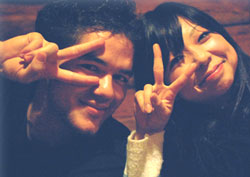 Today I am going to talk about the exciting decisions of those students who broaden their horizons by studying abroad. Furthermore we will talk to an expert who helps these students get the right information and financial support for fulfilling their dreams of living and studying in another country. Last but not least I would like to share an urban myth about an intercultural incident on a British Airways flight complete with a happy ending (at least for some of the people involved!)
Today I am going to talk about the exciting decisions of those students who broaden their horizons by studying abroad. Furthermore we will talk to an expert who helps these students get the right information and financial support for fulfilling their dreams of living and studying in another country. Last but not least I would like to share an urban myth about an intercultural incident on a British Airways flight complete with a happy ending (at least for some of the people involved!)
absolutely remarkable
In Germany it is normal for about 20% of students at universities go abroad during their studies. However, Anne Gründer, is rather special in many ways. She studied Biomathematics and chose to spend a semester studying abroad at EWHA Woman’s University in Seoul, South Korea. And because she enjoyed her time so much she actually extended her stay for a second semester. Anna also successfully learned the language with the Asian symbols that look so unfamiliar to the western eye. Now that she is back in Germany she looks back on the cultural differences she experienced and shares how she benefited from her stay. In our first category she will start by telling us why she chose South Korea as her destination for her semester abroad.
absolutely courageous
If one of our listeners is toying with the idea of coming to Germany, our interview will be particularly interesting for you. Kata Perjési is an Hungarian student. After spending a study semester abroad in Finland, she had planned to do her internship in Finland too. However, luckily for us she ended up being our new intern here at RheinAhrCampus. Kata is from Corvinus University in Budapest and will stay here for six months. In our next category she is going to tell us, why she chose Germany as her destination and what benefits she expects to get out of her stay abroad.
absolutely ideal
Our last guest for today is Wolfgang Kräft. He is working for the “German Academic Exchange Service or DAAD”. Together with his team, one of Wolfgang’s jobs is to travel through Germany and to inform German students how they could study abroad and which financial support they can get. They stop in bigger cities with their go-out mobile bus and provide students with a lot of information. In our last category Wolfgang will tell us what the ideal study abroad student should look like, how students can receive information about a semester abroad and finally he will give us advice on how your stay abroad could be the most productive time of our studies.
absolutely funny
Let me finish today with an intercultural urban myth about a black man and a white woman – a story has turned into a well-copied piece on the internet over the last decade. According to different versions this incident would have happened on about 17 different Airlines which is not very plausible but the story is nice enough to be re-told here:
“A 50- year old white woman on a British Airways flight arrived at her seat and saw that the passenger next to her was a black man. Visibly furious, she called the air hostess.
“Whats the problem, ma?” the hostess asked her
“Cant you see?” the lady said – “I was given a seat next to a black man. I can’t sit here next to him! You have to change my seat”
– “Please, calm down” – said the hostess
“I think, all the seats are occupied, but I`m still going to check if we have any.”
The hostess left and returned some minutes later.
“Madam, I spoke to the captain and he confirmed that there isn`t any empty seats in the economy class. We only have seats in the first class.”
“Look, it is unusual for our company to allow a passenger from the economy class be upgraded to the first class. However, given the circumstances, the captain thinks that it would be a scandal to make a passenger travel sat next to an unpleasant person.”
And turning to the black man, the hostess quickly said:
“Which means, Sir, if you would be so nice to pack your hand luggage, we have reserved you a seat in the first class…”
And all the passengers nearby, who were shocked to see the scene started applauding, some giving standing ovations.”
Adapted from: http://www.thatsnonsense.com/view.php?id=1481
Our next show will be coming to you from Anne Fox in Denmark on 4 May.
Until then –
Bleiben Sie absolut interkulturell!
The host of this show is: Dr. Laurent Borgmann
Editor: Markus Scherer
![]() Download
Download
![]() Podcast-Feed
Podcast-Feed
![]() iTunes-Abo
iTunes-Abo


